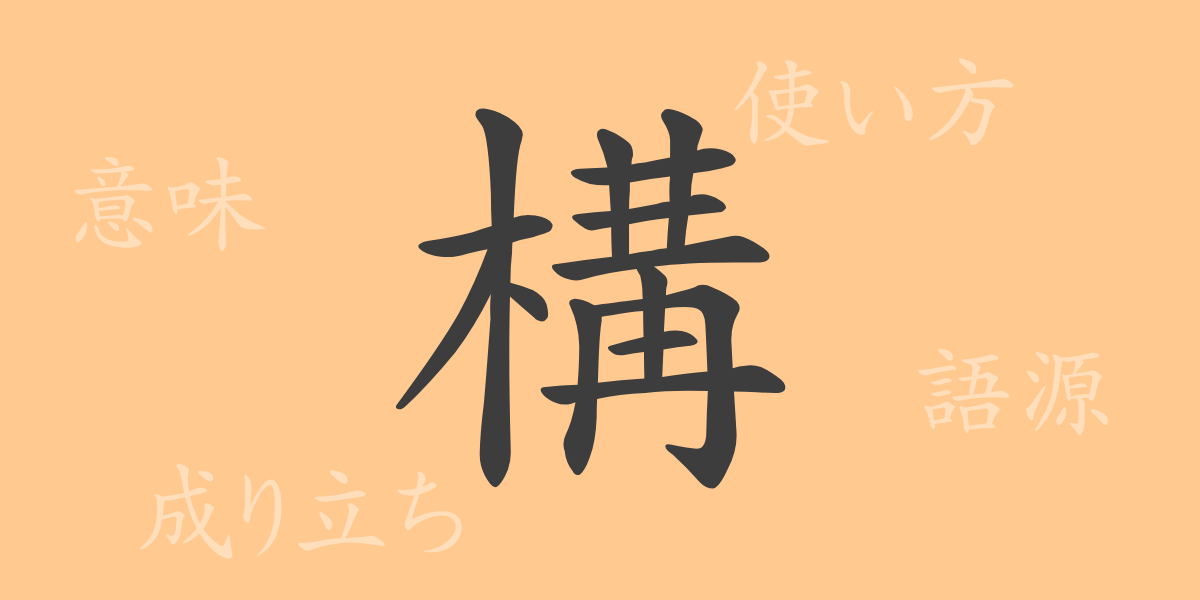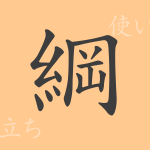There are numerous kanji in the Japanese language, each with its own unique history and meaning. This time, we focus on the commonly used kanji “構(こう)” that is frequently seen in daily life, delving into its origin, meanings, and usage. Let’s embark on a journey to rediscover the richness of expression each kanji holds and the beauty of the Japanese language that utilizes them.
Origin of 構(こう) (Etymology)
The kanji “構(こう)” is composed of the radical “木(き)” which means wood, combined with “冓(こう),” which depicts a form of ambush. In ancient China, “構(こう)” was used to mean preparing something by assembling wood or planning something systematically. This background led to “構(こう)” being associated not only with physical construction but also with forming abstract plans and systems.
Meanings and Usage of 構(こう)
In modern Japanese, “構(こう)” often refers to the structure or construction of things and is used in various contexts. For instance, “構造(こうぞう)” refers to the internal structure of objects or phenomena, while “構成(こうせい)” denotes the arrangement and relationship of parts that form a whole. It also appears in expressions related to emotions and attitudes, such as “気に構う(きにかまう),” meaning to worry about someone’s actions, or “構わない(かまわない),” meaning not to care about something.
Readings, Stroke Count, and Radical of 構(こう)
The kanji “構(こう)” has multiple readings in Japanese, which vary depending on the context in which it is used.
- Readings: On-yomi: こう, Kun-yomi: かま.える, かま.う
- Stroke count: 14 strokes
- Radical: 木(きへん) (wood radical)
Idioms, Phrases, and Proverbs Using 構(こう)
There are many idioms, phrases, and proverbs that include “構(こう).” Here are a few examples:
- 「構造(こうぞう)」 – The internal structure or relationship of things.
- 「構成(こうせい)」 – Forming the shape or system as a whole.
- 「心構え(こころがまえ)」 – Preparation or readiness for something.
- 「構想(こうそう)」 – Planning or devising something.
- 「構築(こうちく)」 – Assembling to create a system or building.
- 「気に構う(きにかまう)」 – To worry about someone’s actions.
- 「構わない(かまわない)」 – Not caring about someone’s actions or situations.
These idioms and phrases highlight the richness of the Japanese language and illustrate the expansive meanings that a single kanji can hold.
Conclusion on 構(こう)
The kanji “構(こう)” represents the act of assembling things or preparing oneself, reflecting its shape and meaning. Understanding and using “構(こう)” correctly in Japanese not only aids in accurate expression but also connects us to the rich cultural background it embodies. We hope this article has allowed you to glimpse the profound world that “構(こう)” encompasses.

























